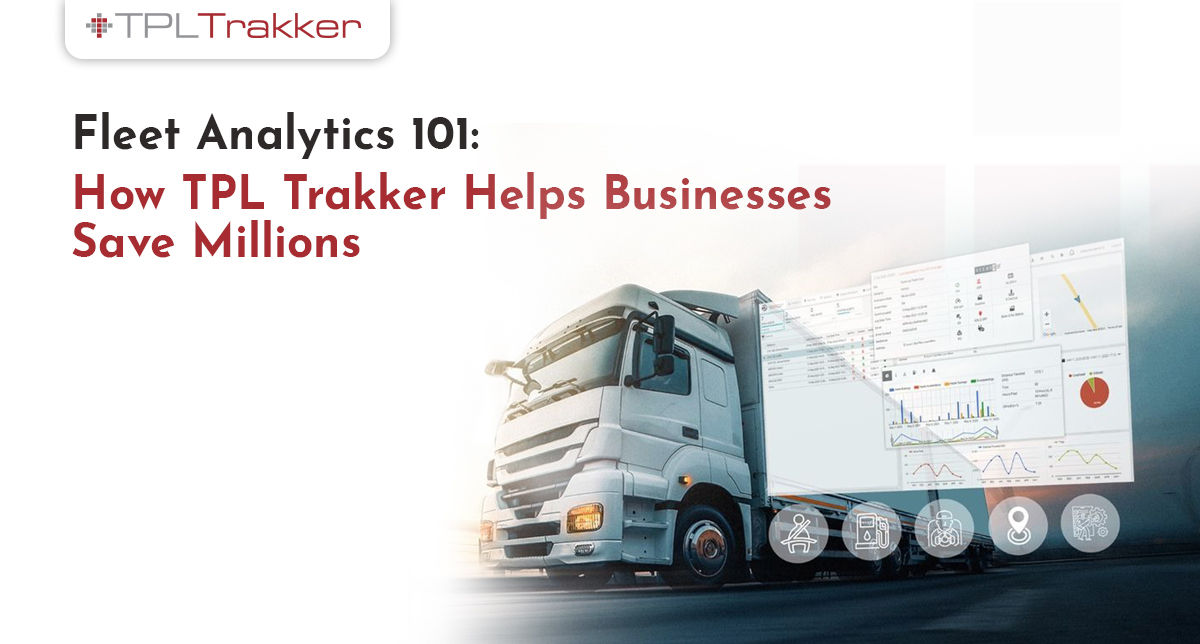Fleet Analytics 101: How TPL Trakker Helps Businesses Save Millions
Running a Fleet analytics Pakistan is tough. You face higher fuel prices, constant vehicle repairs, driver safety concerns, and a pressure to always be more efficient. Outdated, paper-based fleet management is simply too slow for the pace of modern business. Enter fleet analytics.
By layering GPS tracking, telematics, and smart data crunching, firms are now able to make quick, informed choices that lower costs and boost profits. TPL Trakker, a leader in Pakistan, shows companies how to tap fleet analytics to trim expenses, boost output, and keep drivers safe.
What is Fleet Analytics Pakistan?
Fleet analytics means gathering, studying, and using data from trucks and cars. It’s more than just seeing where a vehicle is on a map—it turns piles of numbers into practical steps that save money and make fleets run better.
When you use the right analytics tools, your fleet can really level up:
- Track how drivers and vehicles perform every minute on the road.
- Cut down on wasted fuel and lower upkeep costs.
- Plot the smartest delivery routes.
- Make the most of every truck and trailer.
- Keep safety and compliance levels where they belong—at the top.
Why You’ll Love TPL Trakker’s Fleet Analytics
- Save Fuel, Save Money
In Pakistan, fuel eats up a huge chunk of a fleet’s budget. TPL Trakker’s system monitors how far trucks go, how long they sit idle, and how much fuel they burn—at the same time, every time. Real-time alerts highlight wasteful habits, so you can coach drivers to use less gasoline and more intelligence. Companies typically save 15% to 20% on fuel bills once they dive into the data.
- Prevent Breakdowns with Predictive Care
Rather than sending a mechanic to a truck after it limps into the shop, TPL Trakker monitors vehicle health and generates alerts before problems grow. Fewer emergency repairs, longer truck life, and more days spent delivering—downtime shrinks.
- Keep Drivers Safe and Liable Costs Down
Analytics spotlight risky patterns: speeding, slamming brakes, or rounding corners too sharply. When you tackle these habits, you can:
- Cut accident frequencies.
- Lower the number of claims sent to your insurance.
- Coach drivers to take the curves a little slower.
The result is safer roads, smaller bills, and a gold-star reputation for doing transportation the right way.
Route Optimization and Time Management
Thanks to smart route analytics, delivery companies can now choose the quickest, cheapest, and most fuel-efficient route in seconds. Less fuel, quicker trips, and happier customers all happen at the same time. It’s like the app finds the magic path!
Insurance Savings
Insurance companies are rolling out discounts for trucks that have top-tier tracking and analytics software. The fewer accidents, thefts, and claims happen, the lower the premium. Those tiny drops in costs, added up over years, can save a business millions.
Theft Protection and Asset Recovery
Vehicle theft is still a hit to businesses in Pakistan. TPL Trakker’s real-time tracking keeps a watchful digital eye. The moment a vehicle is moved unexpectedly, the system sends an instant alert, and a support team kicks in to get it back. That’s how businesses minimize losses and keep the wheels turning the same day.
How TPL Trakker Stands Out
Every service offers GPS, but TPL Trakker steps up to deliver complete fleet analytics. Its software is built for Pakistan, so it connects smoothly to local towers, follows local guidelines, and has a customer service team that never sleeps. By blending the latest IoT, telematics, and cloud analytics, TPL Trakker helps companies trim operational costs while making their fleets run like clockwork.
Conclusion
In Pakistan’s tough market, fleet analytics isn’t just an option; it’s what keeps businesses winning. Using data to lower fuel use, stop breakdowns, coach drivers, and plan smarter routes lets firms slash expenses and boost their bottom line.
TPL Trakker’s top-tier fleet analytics tools give firms the clear insights they need to streamline operations, boost safety, and save millions. Come 2025 and later, the companies leading the transport and logistics sector in Pakistan will be the ones fully harnessing data to steer their fleets.

